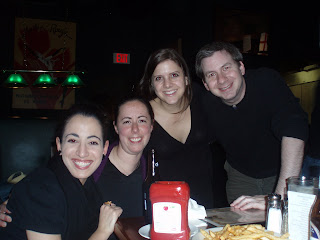In the book What the Dog Saw, Malcolm Gladwell (the author of Blink, Outliers and The Tipping Point, and writer for the New Yorker) explains how nervousness shows up in one of two different ways: chocking or panicking. Here is the difference, and how it translates into performance.
- Panicking
That's when you stop thinking. For example when you forget where you are in the music and you can't think of options to get back into it, or when you do a rhythmic mistake and you can't think of what beat you're on or what makes a beat (quarter note, half note, eight note?).
- Chocking
That's when you think too much, the same way you did when you first learned how to play your instrument or the piece; when the technique of a piece had become a habit, that happened mechanically, and that in performance you start thinking of every single note and gesture and rhythm and emotional content and phrasing, etc.
You lose your instincts.
More power to us!
Share


























